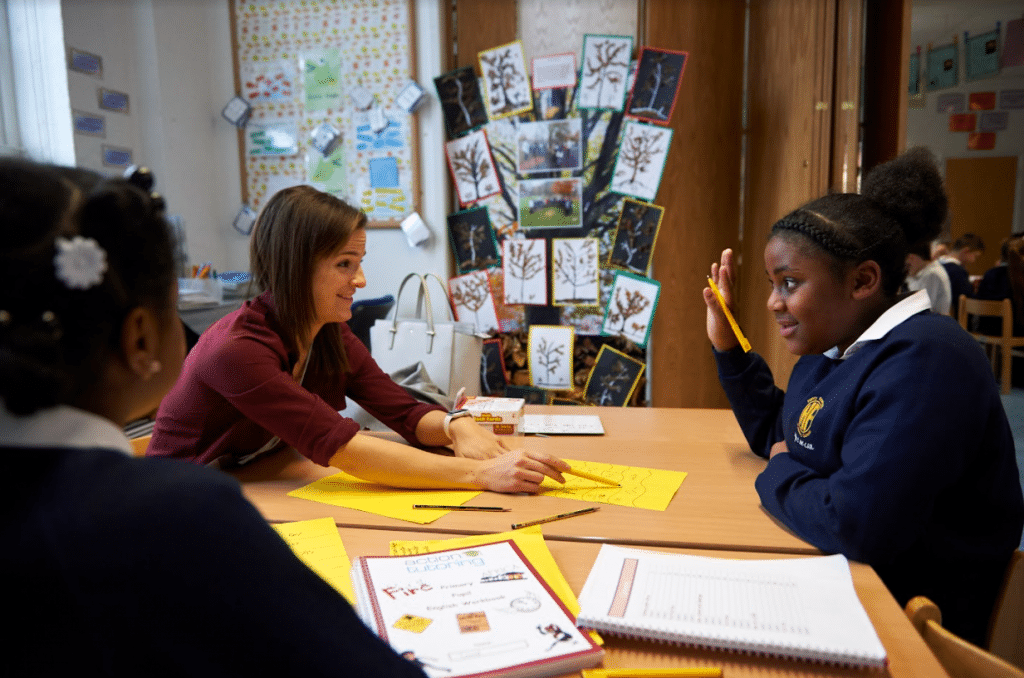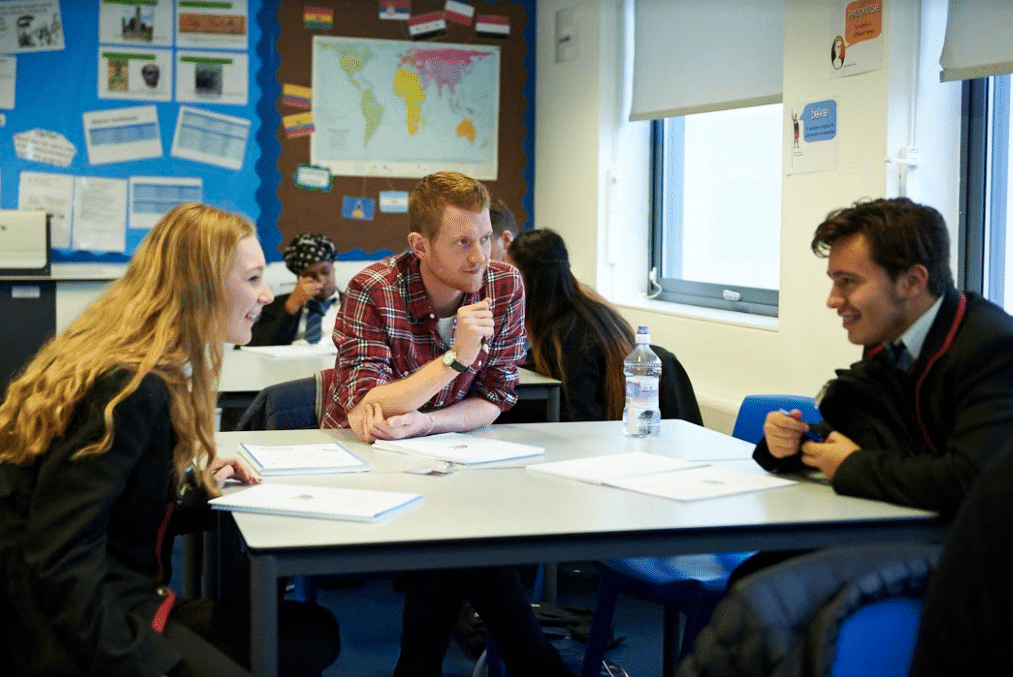Three ways our volunteer tutors support children’s mental health
Children’s Mental Health Week takes place on 7-13th February this year and is run by Place2Be charity. This year’s theme is Growing Together, focusing on how we can support each other in growing emotionally and building a safe support system around us.
Being mentally healthy involves feeling good about ourselves, forming and maintaining positive relationships with people around us, and being able to feel and manage a wide range of emotions. At Action Tutoring we believe the emotional well-being of pupils is as equally important as their academic progress.
Growing emotionally requires us to move beyond our comfort zone and this can be particularly challenging if we are alone. Volunteering is a two-way street: it can make a real difference to the lives of others who need additional support, and at the same time it gives us the opportunity to meet people who motivate and inspire us. This way, we feel part of an empowered community and continue to grow personally and professionally.
This week we encourage everyone to reflect on how to help each other grow and offer support to those who need it the most. Emotional growth is a gradual process and everyone experiences it in different ways.
Studies show that disadvantaged pupils are more likely to suffer from poor mental health after Covid-19; in particular, one in six disadvantaged children have a diagnosable mental health condition.
All of our volunteers are committed tutors who empathise and understand the additional struggles of pupils from low-income families. Prioritising mental health issues early on is incredibly important in nurturing confident individuals who will thrive in life.
How do Action Tutoring volunteers support children’s mental health?
Active listening and healthy ways of communication
We encourage all our tutors to actively listen to pupils’ concerns and make sure they feel supported, confident and heard. One of the most valuable things our tutors do is approach mental health issues in a non-stigmatising way. Our mission is to make everyone feel included, no matter their socio-economic status or background.
However, it is important to remember that while our volunteers are there to listen and empathise, they are not experts in mental health issues. Empathy involves recognising what pupils are feeling, trying to understand their perspective and never judging emotions and experiences.
That’s why tutors avoid giving advice or trying to resolve issues on their own. If a child shares anything that is particularly concerning, our volunteers communicate directly with our Programme Coordinators and follow safeguarding procedures accordingly.
Creating a welcoming and safe learning environment
Action Tutoring volunteers have the support and resources they need to make tutoring sessions welcoming and safe for all pupils. This helps children feel comfortable to share their thoughts, experiences and opinions without the fear of negative feedback or criticism from their tutors. A safe learning space, with clear boundaries and effective communication, also allows tutors to handle sensitive topics more confidently.
The cooperation between our volunteer tutors, Programme Coordinators and teachers has allowed us to help pupils in the best way possible and ensure their mental wellbeing.
Positive role models
Action Tutoring volunteers also serve as positive role models for our pupils. It’s extremely important for disadvantaged children to interact with understanding, calm and honest adults. These characteristics motivate pupils to mirror similar attitudes and feel more confident, so that they can open up and engage during the tutoring sessions.
Cohen is in Year 11 at Seaford Head School in East Sussex. His tutor, Jill, has worked with him and another pupil in English since the start of the programme. This is what Cohen had to say about his sessions:
‘’My tutor is ten out of ten! It’s been nice to talk to someone who’s genuinely there to help me.’’
How can you help?
Volunteer with us
Join our volunteering community and become a tutor in English or maths. You can choose to help pupils by tutoring online or in-person. It’s only one hour a week, and your support is important now more than ever.
Receiving judgement on academic performance can seriously impact a child’s mental health. By getting involved, your pupils will not only receive academic help, but they will also feel emotionally supported and grow in confidence.
Volunteer tutors make pupils feel less alone and increase their confidence, so that all children can enjoy the process of learning.
Spread the word
We would love your support to help us raise awareness and motivate more people to get involved. Every volunteer provides tremendous support to our cause and helps pupils during these challenging times.
Do you know someone who can volunteer as a tutor? Spread the word by sharing our blog on social media!
Make a donation
If you don’t have the time to tutor with us, donations are also a great way to change the future of disadvantaged pupils. Every donation we receive allows us to reach out to even more young people and make a difference in their lives.
Whether you are making a donation, volunteering with us or using social media to shine light on the importance of mental health and wellbeing of pupils, we are incredibly thankful. Your continuous support is vital for our mission!





